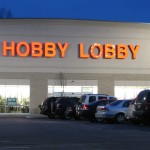
Last week’s Supreme Court decision in Obergefell v. Hodges opens another can of worms that is driving rhetoric in a way that misdirects people from the reality of its affect on religion and the free exercise thereof. No, this does not come from a lawyer, it comes from a missionary who, for more than 20 years, has delved into the legal entities that churches have embraced, essentially transforming their structure. And the change occurred innocently by way of the non-profit organization enticement.
Here are some salient points:
- It all comes down to whether or not government has a compelling interest to force compliance with its regulation (which the requirement to provide abortifacients is) upon the individual, and in this instance, churches.1There is only one Law of the Land—the Constitution.
- The Obergefell v. Hodges opinion states that civilmarriage is a “right” under the 14th amendment, albeit erroneously based on “human dignity” which, as pointed out by others smarter than myself, is nowhere addressed in the Constitution. It does not and cannot overrule or undermine the First Amendment right of free exercise of religion because the Constitution is written as a whole and without contradiction. Thus, one “right” cannot supersede another. “Baker v. Nelson must be and now is overruled, and the State laws challenged by the Petitioners in these cases are now held invalid to the extent they exclude same-sex couples from civil marriage on the same terms as opposite-sex couples.
- Churches may not be pressured to perform a “civil marriage” IF they are not a civil entity. Caveat? If they have conceded to government insistence to operate as a corporate 501(c)(3) in order to obtain non-profit status (when, as a church, they already qualified as not-for-profit), they unwittingly signed-up under government influence.
- The ruling that came from SCOTUS in the Hobby Lobby case should be considered as invoking a guarantee of religious individuals’ rights to practice their faith without government forcing them to compromise those beliefs. “HHS has not shown that it lacks other means of achieving its desired goal without imposing a substantial burden on the exercise of religion.” (Burwell, Secretary of Health and Human Services, et al. v. Hobby Lobby Stores, Inc. et al., Syllabus P. 5, Opinion Pp. 40-45). Same-sex couples also have “other means” of fulfilling their desires besides compelling individuals to sacrifice faith to accommodate them.

Does the government have a compelling interest in coercing pastors and religious leaders to preside over a ceremony that is anathema to their espoused belief?
Does the government have a compelling interest in coercing pastors and religious leaders to preside over a ceremony that is anathema to their espoused belief? Even using the condescending words that Justice Kennedy wrote in the majority opinion regarding religious belief,
“Many who deem same-sex marriage to be wrong reach that conclusion on honorable religious or philosophical premises, and neither they nor their beliefs are disparaged here. But when that sincere, personal opposition becomes enacted law and public policy, the necessary consequence is to put the imprimatur of the State itself on an exclusion that soon demeans or stigmatizes those whose own liberty is then denied[;]”
the ruling does not empower the government to override the consistent application within that religious organization. For, by his own argument, it “soon demeans or stigmatizes those whose own liberty is then denied.” It cannot work only one way where it supports a minority and despises the majority. Although, it wouldn’t be off-base to suggest that the only rationale for adding this sentiment to the opinion was to appease religious faiths truly intolerant of homosexuality such as Islam.
Where the situation gets sticky is this… the consequences of a church having subjected itself to the requirements of government by voluntarily signing up for non-profit status. It is unfortunate that over two decades of addressing the problematic application to government to receive non-profit status that churches already held, church leaders have denied what that action inadvertently occasioned: their placement under government oversight as a corporate or civil entity. This was covered in the article“Freedom of religion and the government “qualified” church.”
As much as Christian leadership will not want to hear this, the conclusion is that a church might only be legally cowed to submit to activist LGBT pressure if the individual church is organized under section 501 of the Internal Revenue Code.
Yet, as the Hobby Lobby ruling went in favor of individuals—and the corporation was defined as a “person”—to continue following their deeply held religious beliefs, there may be relief in application of that case should a challenge be brought against a pastor. Frankly, it is a wonder that the Hobby Lobby case has not been cited more in recent so-called discrimination cases brought against businesses that stood by their religious conviction in denying services (having a winning application of the RFRA and First Amendment right to free exercise of religion).
Churches take notice that remedy is available. Fear is not an option for those who operate in Faith.
- A. Dru Kristenev, 2nd Edition, 2015, Sebelius’ fallacious argument against Hobby Lobby, Pg. 49. Pay Attention!! ChangingWind.









